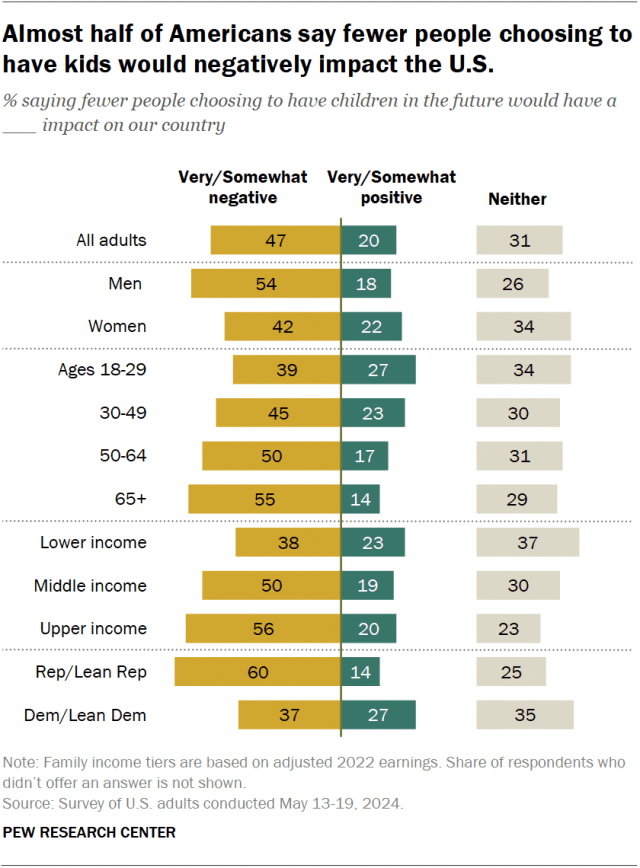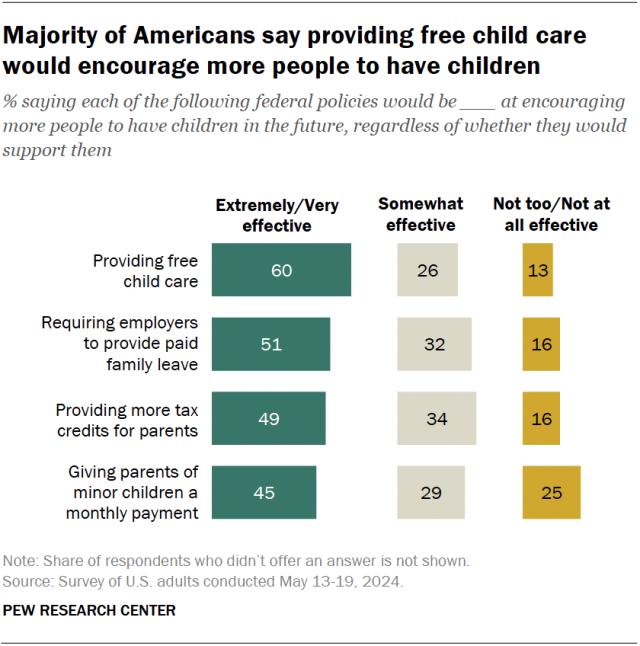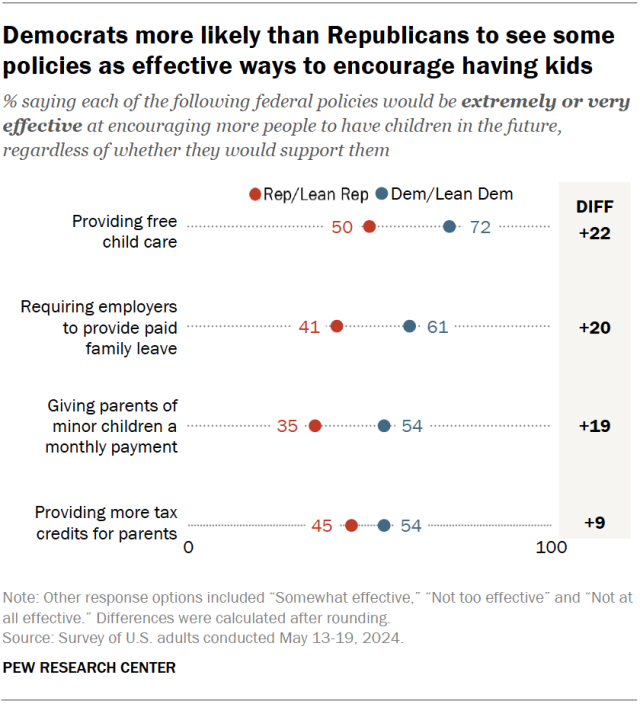The share of U.S. adults younger than 50 without children who say they are unlikely to ever have children rose 10 percentage points over five years, from 37% in 2018 to 47% in 2023.
Pew Research Center conducted this analysis to study Americans’ views on fewer people choosing to have children and policies that might encourage more people to have them in the future, regardless of whether they support them. To do this, we surveyed 8,638 U.S. adults from May 13 to 19, 2024.
Everyone who took part is a member of the Center’s American Trends Panel (ATP), an online survey panel that is recruited through national, random sampling of residential addresses. This way nearly all U.S. adults have a chance of selection. The survey is weighted to be representative of the U.S. adult population by gender, race, ethnicity, partisan affiliation, education and other categories. Read more about the ATP’s methodology.
Here are the questions used for this analysis, along with responses, and its methodology.

Among those adults, 57% say a major reason they’re unlikely to have kids is that they just don’t want to, according to a new Pew Research Center survey.
Almost half of all U.S. adults (47%) say fewer people choosing to have children in the future would have a negative impact on the country, according to a separate spring 2024 survey.
Men, older adults, Republicans and Americans with higher incomes are among the most likely to say fewer people having children would have a negative impact. Differences by gender, age and income remain when looking separately at Democrats and Republicans.
Related: The Experiences of U.S. Adults Who Don’t Have Children
What policies do Americans think would encourage more people to have children?

We also asked Americans what federal policies they think would be effective at encouraging more people to have children in the future, regardless of whether they personally support these policies.
Six-in-ten say providing free child care would be extremely or very effective.
About half of Americans (51%) say requiring employers to provide paid family leave would be a highly effective strategy. A similar share (49%) says the same about providing more tax credits for parents.
Some 45% of Americans say giving parents of minor children a monthly payment would be a highly effective policy.
These views vary by party. Democrats and Democratic-leaning independents are more likely than Republicans and Republican leaners to say each of the following would be highly effective:

- Providing free child care (72% vs. 50%)
- Requiring employers to provide paid family leave (61% vs. 41%)
- Providing more tax credits for parents (54% vs. 45%)
- Giving parents of minor children a monthly payment (54% vs. 35%)
These views may reflect the fact that Republicans tend to prefer a more limited role for the federal government.
Differences among Republicans
Although Republicans express less support for each of the policies we asked about, there are differences by gender and age among those who align with the GOP.
By double-digit margins, Republican women are more likely than Republican men to say two policies would be highly effective:
- Providing free child care (56% vs. 44%)
- Requiring employers to provide paid family leave (47% vs. 37%)
Gender differences on the other policies are more modest.
There are also differences by age. Republicans under 50 are more likely than older Republicans to say all four approaches would be highly effective.
Republicans under 30 are especially likely to say free child care (69%) and paid family leave (63%) would be highly effective at encouraging more people to have children.
Differences among Democrats
There are no significant gender differences among Democrats, except on paid family leave. Democratic women (64%) are slightly more likely than Democratic men (58%) to see this as a highly effective way to encourage more people to have kids.
By double-digit margins, Democrats younger than 50 are more likely than those ages 50 and older to say each of the following would be highly effective:
- Requiring employers to provide paid family leave (66% vs. 55%)
- Giving parents of minor children a monthly payment (61% vs. 44%)
There are smaller differences by age on the other two policies we asked about.
Note: Here are the questions used for this analysis, along with responses, and its methodology.
